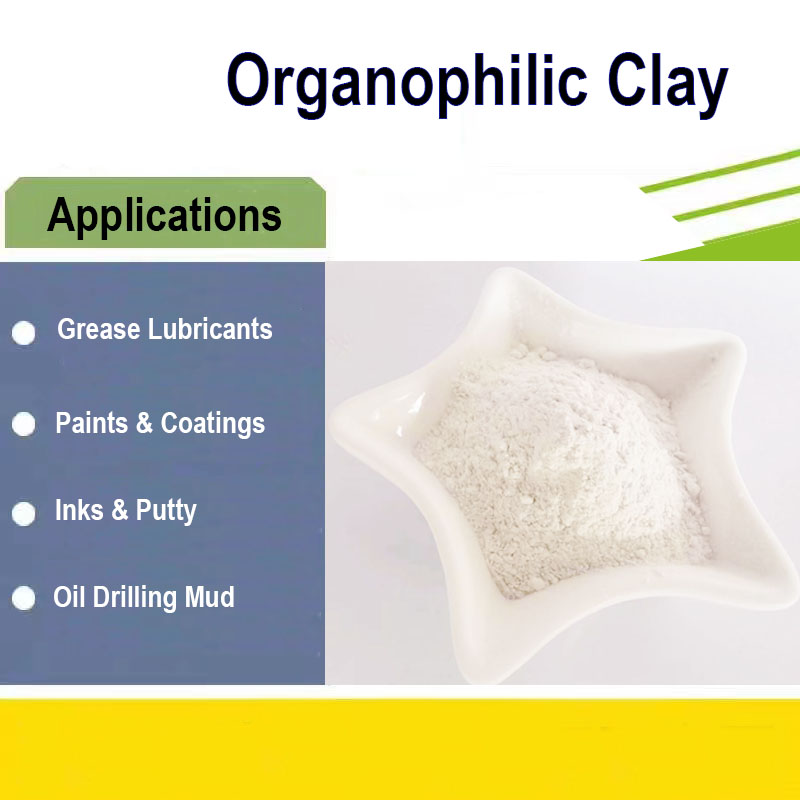Organoclay Thickeners
While there are various types of non-soap grease thickeners available, polyurea, clay, and fluoropolymers are commonly employed. Organoclay, with its unique properties, offers advantages such as enhanced thickening efficiency and improved stability under different operating conditions.
The thickener component is very important in differentiating greases from fluid lubricants. Greases, unlike their fluid counterparts, exhibit a semi-solid or solid consistency due to the presence of a thickener. This thickener imparts viscosity and structural stability to the lubricating grease that is used commonly in oil field drilling industries.
Inorganic Grease Thickeners
Inorganic grease thickeners have the ability to produce non-melting greases. Non-melting greases are designed to withstand high temperatures without losing their consistency or structure. The inorganic thickeners, such as clay and silica, impart stability and heat resistance to the grease, preventing it from melting or thinning under elevated temperature conditions. This characteristic makes them particularly suitable for applications where lubrication is required in extreme operating environments, such as high-temperature machinery or equipment.
The use of bentonite clay efficiently thickens fluids and contributes to the creation of smooth, non-melting greases. The ability of inorganic thickeners to withstand high temperatures and maintain their structure. Bentonite clay minerals thickens the fluid by trapping and immobilizing the liquid within its interplatelet spaces, resulting in increased viscosity.
Right Grease Thickening System: Non-Soap Thickeners
When it comes to selecting the right grease thickening system, non-soap thickeners offer a diverse range of options, each with its unique properties and advantages.
Organoclay
Organoclay such as bentonite clay is a popular non-soap thickener. It provides excellent thickening efficiency and stability across a wide range of operating conditions. Organoclay thickeners offer enhanced performance in terms of viscosity control, resistance to shear, and improved pumpability. It can also enhance the viscosity, stability, and performance of the products. Organoclay is the most reliable non-soap thickener available in the market. Plus, it’s easy to purchase organoclay thickeners as well.
Silica
Silica is known for its ability to provide high-temperature stability. It also has great resistance to oxidation. Silica thickened greases offer excellent mechanical stability and can withstand heavy loads and extreme pressures.
Calcium Sulfonate
Exhibits excellent water resistance that makes them suitable for applications where water contamination is a concern. They offer superior rust and corrosion protection, and thermal stability.
PTFE
Polytetrafluoroethylene imparts excellent boundary lubrication and anti-wear properties to greases. It forms a thin film on metal surfaces, reducing friction and preventing metal-to-metal contact. PTFE-thickened greases are often employed in extreme temperature environments and applications.
Carbon Blacks
Commonly used in electrical and automotive applications where conductivity and heat dissipation are vital. They provide effective lubrication in high-temperature and high-load conditions.
Polyurea
Greases thickened with polyurea exhibit excellent water resistance, high-temperature stability, and long-lasting performance. They are commonly used in applications where extreme pressure and water washout resistance.
Organoclay Solvent Base Thickener
An advantage of organoclay solvent base thickeners is their ability to disperse readily in solvent-based systems. This characteristic ensures efficient and homogeneous incorporation into the paint or coating formulation without the need for complex preparation processes. The easily dispersible nature of the organoclay thickener simplifies the manufacturing and application processes of solvent base paints and coatings.
Also, incorporating organoclay solvent base thickeners, the viscosity of solvent-based paints and coatings can be effectively increased. This enhanced viscosity helps in controlling the flow behavior and sag resistance of the formulation during application. It allows for better brushability, rollability, or sprayability, depending on the intended application method, leading to improved coating uniformity and film build.
Organoclay solvent base thickeners are suitable for aliphatic and other non-polar to medium-polarity solvents. These solvents can include hydrocarbons, mineral spirits, aromatic solvents, and various other low-to-medium polarity organic compounds commonly used in solvent-based paint and coating formulations.
Applications
Organoclay thickener is a versatile additive with a broad spectrum of applications. It finds a wide range of applications across various industries due to its exceptional thickening properties. These are just few applications of organophilic clay as a thickener:
Paint Thickener
If you add and use organoclay in paint, manufacturers can achieve the desired consistency, preventing drips, runs, or excessive spreading during application. This thickener ensures better control over paint application, resulting in improved coverage, reduced wastage, and enhanced overall aesthetics. Organoclay-based paint thickeners are used in various paint types, including water-based, solvent-based, and oil-based paints.
Coating Thickener
Organoclay thickeners can be used architectural coatings, industrial coatings, automotive coatings, and wood coatings. The addition of organoclay enhances the viscosity of the coating, enabling better film build, improved leveling, and reduced sagging. Coatings with appropriate thickness achieved through organoclay thickening exhibit improved durability, resistance to abrasion, and better protection against environmental factors such as moisture, chemicals, and many more.
Inks Thickener
Organoclay thickener is employed to enhance the viscosity and stability of inks. It enables controlled ink flow, prevents ink spreading or feathering on the substrate, and improves the sharpness and definition of printed images. Organoclay-based ink thickeners ensure consistent ink performance, better print quality, and increased color intensity.
Grease Lubricant Thickener
Grease is a semi-solid lubricant composed of a base oil and a thickener. Organoclay is used as a non-soap thickening agent that imparts desirable viscosity and stability to the grease. This thickener ensures that the grease adheres to surfaces, resists excessive oil separation, and provides effective lubrication in a wide range of applications. Organoclay-based grease thickeners offer excellent shear stability, water resistance, and high-temperature performance, making them suitable for demanding industrial applications like in oil field drilling mud and wastewater management.


